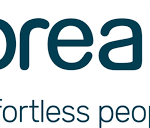This month’s relationships in the workplace blog is written by our office manger, Carla Brown
When I mentioned writing a blog on relationships, my colleagues probably thought I was only going to talk office romance, flirting and lingering gazes over the photocopier. I guess that’s an understandable presumption as many romantic relationships develop in the workplace. Like-minded co-workers who share interests, attitudes and goals may mean that a colleague evolves into a partner. In fact, Barack and Michelle Obama met at a law firm when she was his supervisor. However, not all work based relationships work out so well.
Dedicated employees
Relationships we build with our colleagues shape our working experience. We don’t always get on with everyone, there may be the person that you say ‘hello’ to at work but with whom you would not socialise. There can be colleagues who others find difficult for some reason and that takes its toll on the work environment. Personally, I’ve had to deal with these scenarios both as a worker and a line manager. It was tough and I was sort of winging it, going by gut-instinct on how to deal with it all. Not really successful or sustainable because I had no guidance with which to refer.
Then, on the other hand, two of my closest friends started off as my colleagues. Admittedly one of them, as my manager, put me in my place a few times and I wasn’t too keen on her in the beginning. My respect grew and after a while (and several post work drinks), we become firm friends. This had other implications in work. Being a friend and manager can sometimes cause conflict.
The backbone of a good company is its employees. Everyone is dedicating a good chunk of their lives putting in effort to ensure the business’s core functions are carried out well. Keeping those same employees happy will essentially keep the business moving. Cultivating and maintaining good working relationships can make those employees feel positive and, in turn, bring a multitude of other benefits to the workplace and grow the business.
Be positive
There is plenty of research, advice and lists on how to build positive relationships in the workplace, a lot of it with fancy words and methods. It does not have to be complicated to be effective and can be as simple as:
- Communicate effectively (regular, clear, concise, and courteous)
- Be respectful (of others – their time, commitments, opinions, and space)
- Show appreciation (honestly and with feeling, even a small gesture)
- Learning attitude (be open to learning from all, encourage feedback, implement change)
- Celebrate (the wins big or small, and do it together)
All sounds lovely and rosy at this point but at the same time you have to manage the difficult relationships to make sure everyone works well together, and productivity is not affected.
This is the challenging area. As a guide perhaps think of these points:
- Welcome diverse opinions (do not be offended, keep an open mind)
- Conduct direct conversations (honest, polite, and professional)
- Be welcoming (available managers who are not evasive)
- Don’t gossip (be professional, use procedure)
Dealing with difficult relationships is the one where much can go wrong very quickly if the right intervention and processes are not implemented. A company should have policy and procedures in place so that employees and mangers know where to go and what will happen should a relationship break down.
Manage the relationships process
The key here is managing grievances and disciplinaries successfully, our Senior HR Consultant, Hannah Tricker has some advice –
Train your managers – Set the company expectations, give them the tools and resources to deal with issues effectively. Have simple but clear policies in place for all employees to reference. Give your managers the confidence to handle difficult conversations.
Nip it in the bud early – Deal with issues early on, before they become more formal, complicated and difficult to handle. Have informal discussions in the first instance to highlight concerns as soon as possible.
Be able to seek advice – Utilise your internal HR experts or seek advice from reputable HR Consultants if you feel things are becoming unclear, difficult or an informal conversation isn’t enough.
Document your findings –Protect your business and your employees by keeping records of conversations or meetings held. Ensure any employee involved has sight of these and agrees they are a true reflection of what was discussed. This way they cannot be argued against, should you have to refer to them at a later point.
Have confidence – This topic can be a very grey area but be confident and clear in your company values and beliefs when dealing with issues. Make sure you are also confident in the facts and not be distracted by the noise that could surround you at the time.
Be careful about ‘banter’ – Rethink the saying ‘speak how you want to be spoken to’ or rather: ‘speak how they would like to be spoken to’. Perceptions and how communication is received will always vary between employees; one person’s view on banter maybe in someone else’s view offensive and unacceptable behaviour.
Team Values
Relationships at work play a large role in our happiness as well as creating a healthy company culture. Though we are not at work solely to make friends, we’re not there to make enemies either.
Here at Team PSHR we have worked hard on our values and ensure that all the employees within the team share the same values. This makes for a brilliant, fun and harmonious working environment (at least when we are all in the office!). This helps us all to be as productive as possible and we collaborate to achieve the Company goals
Need advice…?
If any of the above resonates with you and you’d like assistance for your business, please contact hello@pshumanresources.co.uk or call our offices on 01473 653000 and one of our consultants will be happy to help.
TeamPSHR





